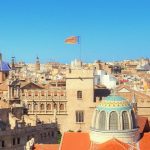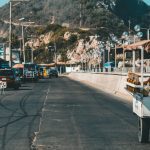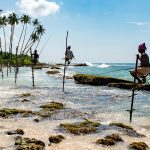Carrion-eaters seen as an essential part of eco-systems
IAN STALKER
Africa travel specialist African Travel Inc. believes avian beauty may be in the eye of the beholder and so its staff aren’t among those who cringe when spotting birds that may make some people recoil.
Company president Sherwin Banda reports the tour operator has partnered with TreadRight, its non-profit foundation, and different wildlife conservation groups to help safeguard African vultures, birds Banda concedes are often looked at in an unfavorable light but which he says plays a valuable role in their eco-systems.
And African Travel, Inc. clients are being invited to see the carrion-eating creatures up close, gaining a greater appreciation of them while doing so.
“Vultures are often overlooked and regarded as lonely scavengers, but they are crucial to Africa’s environment for a number of reasons,” Banda states. “After lions, cheetahs, or other predators have killed their prey and left the carcass to rot, vultures play an essential role in the ecosystem by consuming the remains. When the meat starts rotting and if other animals consume it, it can make them sick. In addition, rotting meat attracts flies and other disease-carrying organisms. If vultures were not a part of the natural cycle of life, it would negatively impact the ecosystem and eventually lead to the destruction of wildlife. They help keep the ecosystem healthy to prevent the spread of diseases. Although they may not be the most attractive creatures, they are very important to Africa’s circle of life as they help keep the ecosystem clean.”
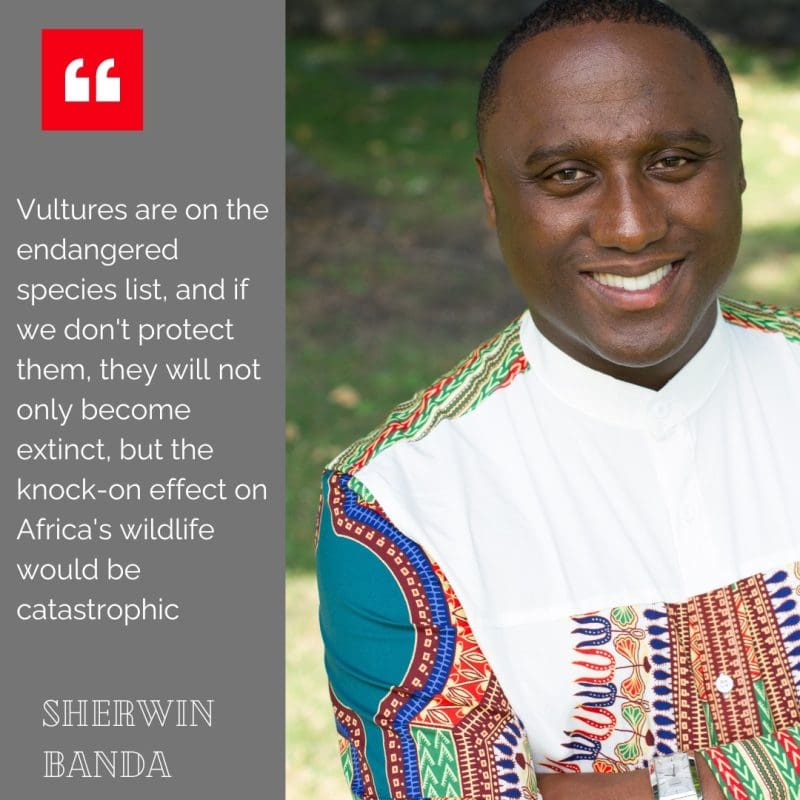
A corrosive stomach acid allows vultures to eat rotting animal corpses that may be infected with diseases such as rabies or other harmful contaminants.
African Travel, Inc.’s 10-day South Africa Natural Wonders safari has clients enjoy a MAKE TRAVEL MATTER Experience, visiting the Shamwari Centre’s Born Free Big Cat Sanctuary and The Wildlife Rehabilitation Centre, as well as the Vulture Breeding Program with its partner, Vulpro.
Shamwari Private Game Reserve has seven lodges and three rehabilitation and education facilities. The reserve is a safari destination known for successful conservation initiatives. Guests have opportunities to learn alongside wildlife conservationists and veterinary experts, gaining a deeper understanding of wildlife and wildlife habitat.
African Travel, Inc. has 95 MAKE TRAVEL MATTER Experiences across all of their 2024 itineraries in 16 destinations to that it says ensure guest explorations leave the continent more vibrant for future generations. Each conscious travel experience is carefully chosen for the positive impact on the wildlife and local communities ATI explores as well as for clients who experience them. These immersive experiences directly advance the Sustainability Development Goals set by the United Nations.
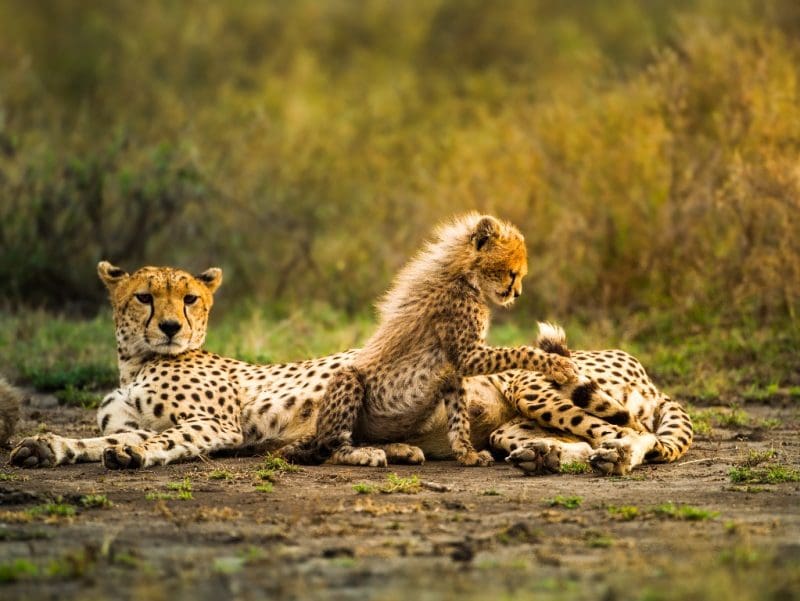
Vultures are encountering numerous human-made threats, with some populations having decreased by over 90% in the past 30 years, and several species facing possible extinction. In partnership with Vulpro, an organization whose mission is protecting African vultures through collaboration and innovation in South Africa, the Vulture Breeding Program at Shamwari Centre opened in January as part of the Wildlife Rehabilitation Centre experience. It’s Africa’s largest vulture relocation, home to 160 Cape and African White-backed vultures. Guests can visit the centre during their stay.
“Vultures are on the endangered species list, and if we don’t protect them, they will not only become extinct, but the knock-on effect on Africa’s wildlife would be catastrophic,” Banda warns. “Conservation projects such as VulPro, in partnership with the Shamwari Private Game Reserve in South Africa, have significantly boosted the survival chances of these species, and their progress is evident. VulPro has successfully released over 600 vultures from their rehabilitation program, with a survival rate of approximately 65% for all those released. These conservation efforts have yielded positive results as some of the oldest Cape Vultures that were released are now breeding in the wild, which is a clear indication of the positive impact of the program on their population. Vultures have an important role to play, just like the impalas, often referred to as the ‘chicken of the bush’ because they are common prey for predators or predators are crucial in maintaining a balanced wildlife population by preventing any single species from overpopulating, vultures help in preventing the spread of diseases. I call them the clean-up crew of the African Bush.”

Banda blames the negative image frequently attached to vultures on their physical appearance, agreeing that “they are not the most beautiful birds with their bald heads. However, there is a reason why they look less attractive than other birds with gorgeous crests of feathers. While feeding on carrion, they are required to push their heads into the decaying flesh and as such, they must keep their heads clean to avoid infection from worms, flies, and other contaminants. Their featherless heads allow them to stay clean by preventing parasites and harmful insects from clinging to them. This is why vultures are considered one of the healthiest wild species in Africa. It is similar to how lions must lick their fur to maintain cleanliness.
Vultures — known for circling above possible food — aren’t the only African creatures Banda says are unfairly maligned, with the African Travel, Ltd. boss saying warthogs — which also tend to get the thumbs down for their appearance — also help create a better continent.
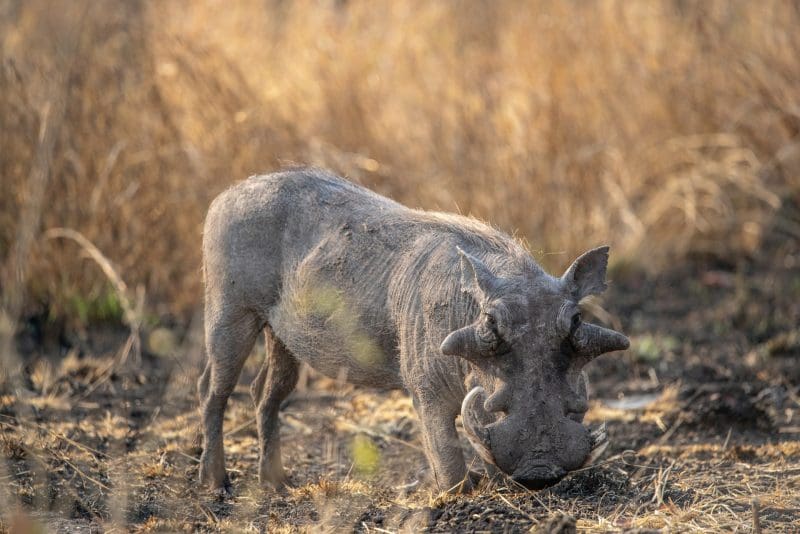
“Warthogs, also known as ‘Africa’s thunderbolt animal,’ are an essential source of food in the bush. When they search for insects to eat, they dig up the topsoil to get closer to the insects. Surprisingly, this action also helps to spread seeds. As they move the soil and seeds around, it creates an opportunity for the seeds to be dispersed into other areas. Additionally, when the next rain comes, the soil and seeds that have been moved around will fertilize the grasslands, promoting their growth. Hyenas are often overlooked due to their unattractive appearance, but they play a vital role in Africa’s ecosystem,” he continues. “In fact, they are classified as critically endangered. They are known as Africa’s morticians, serving as important scavengers similar to vultures. It’s interesting to note that hyenas, being scavengers, played a significant role in keeping the park free from diseases, which in turn allowed new wildlife to thrive in Gorongosa National Park in Mozambique.”
Banda says he hopes those who enjoy viewing wildlife won’t judge vultures on appearance alone. “Although they are not the prettiest-looking birds, there would be no beauty in the African Bush if the vultures were not around,” he warns. “So, let’s call them ‘the ugly duckling of the bush doing miraculous work, making sure that it is healthy and safe.”
Meanwhile, Banda says those visiting Africa should be willing to wander from well-trod trails.

“It’s important to visit less populated areas in Africa and around the world because tourism contributes significantly to these areas’ success,” he adds. “While we encourage people to explore Africa, popular destinations like Kruger National Park tend to receive the largest share of investment. However, other wonderful areas like Shamwari and Madikwe Game Reserve in South Africa are lesser known but equally impressive. As an industry, we have a responsibility to support and promote tourism in these areas. Areas that are less popular do not receive enough investments needed to be sustainable for future generations.”
Banda says exploring lesser-known areas can provide unique and enriching experiences.
“These areas often offer more distinctive experiences for two main reasons: these destinations are not crowded, which gives them a sense of seclusion and untouched beauty; and guests have the opportunity to discover areas with ecosystems and wildlife populations different from what they are accustomed to,” he says.

